PETITIONS
Complaint against unprofessional conduct of the DPC Kiryandongo district for aiding and abetting land grabbing in kiryandongo district.
Published
2 years agoon

The Commandant,
Professional Standards Unit, Uganda Police-Kampala.
Dear Sir/Madam;
RE: COMPLAINT AGAINST UNPROFESSIONAL CONDUCT OF THE DPC KIRYANDONGO DISTRICT FOR AIDING AND ABETTING LAND GRABBING IN NYAMUTENDE KITWARA PARISH KIRYANDONGO DISTRICT AND CARRYING OUT ILLEGAL ARRESTS AND DETENTION OF INNOCENT RESIDENTS/ BIBANJA OWNERS FOR PROTESTING AGAINST THE ILLEGAL EVICTION FROM THEIR LAND.
We act for and behalf of the Lawful and bonafide occupants of Land described as LRV MAS 2 FOLIO 8 BLOCK 8 PLOT 22 (FORMERLY KNOWN AS RANCH 22).
Our Clients are residents of Nyamutende Village, Kitwara Parish in Kiryandongo District where they have lived for more than 30 years and sometime in 2017, they applied for a lease of the said Land to Kiryandongo District Land Board through the Directorate of Land Matters State House.
As they were still awaiting their Application to be processed, they were shocked to establish that the said land had been instead leased to and registered in the names of Isingoma Julius, Mwesige Simon, John Musokota William, Tumusiime Gerald, Wabwire Messener Gabriel, Ocema Richard and Wilson Shikhama, some of whom were not known to the Complainants. A copy of the Search is attached hereto
Our clients protested the above action and appealed to relevant offices, but were shocked to discover that the above persons had gone ahead and sold the same to a one Maseruka Robert.
Aggrieved by these actions, the Complainants appealed to the RDC who advised them to institute proceedings against the said persons, and assigned them a one Mbabazi Samuel to assist them to that effect. The said Mbabazi accordingly filed Civil Suit Noa 46 of 2019 against tne said registered proprietors at Masindi High Court challenging the illegal and fraudulent registration, sale and transfer of the subject land to Maseruka Robert.
While awaiting the progress of the case mentioned hereinabove, the Complainants were surprised to find that the said Mbabazi, instead of assisting them, he went into a consent settling the said suit on their behalf without their knowledge or consent. A copy of the Consent is attached hereto.
Among the terms of the said consent Judgment was that the residents would be compensated without specifying how much and would in return vacate the Land.
As if that was not enough, Maseruka Robert and Mbabazi Samuel are going ahead to execute the said Consent Judgment by forcefully evicting the occupants without compensation which has prompted the complainants to challenge the said Consent by applying for its review and setting aside at Masindi High Court which is coming up for hearing on the 29th March 2023. A copy of the Application is attached hereto.
Sensing the imminent threat of eviction, we also filed an application for interim stay of execution of the said consent to avoid rendering their application for review nugatory but unfortunately the same could not be heard on the date it was fixed for hearing (6th February 2023). A copy of the Application is attached hereto
On Thursday last week, three tractors being operated by 6 workers of a one Mbabazi Samuel [the very person who had been entrusted to represent our Clients to secure their Land through Civil Suit No.46 of 2019] encroached close to 50 acres of our Clients’ land and started ploughing it but our Client’s protested and chased them away.
We have however been shocked to receive information from our Clients that on Sunday at Mid night, 3 police patrols invaded the community in the night and arrested community members; Mulenje Jack, Steven Kagyenji, Mulekwa David, Ntambala Geoffrey, Tumukunde Isaac 15 years, Kanunu Innocent, Mukombozi Frank, Kuzara, Rwamunyankole Enock, and took them to Kiryandongo Police Station where they are currently detained.
We strongly protest the illegal arrests and detention of our Clients as this is a carefully orchestrated land grabbing scheme by Maseruka Robert and Mbabazi Samuel who are receiving support from the DPC Kiryandongo.
The purpose of this Letter therefore is to request your good office to investigate the misconduct, abuse of office and unprofessionalism of the said DPC Kiryandongo District and all his involvement in the land grabbing schemes on land formerly known as Ranch 22.
Looking forward to your urgent intervention,
C.C The Head Police Land Protection Unit Police Head Quarters Naguru
CC The RDC Kiryandongo District
CC The Chairman LCVKityadongo District
CC The Regional Police CommanderAlbertine Region
Related posts:
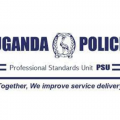
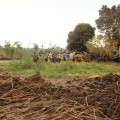 Lawlessness in 2019: a police officer was killed while aiding illegal land eviction in Hoima district
Lawlessness in 2019: a police officer was killed while aiding illegal land eviction in Hoima district
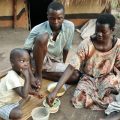 35,000 evicted residents in Kiryandongo district face starvation
35,000 evicted residents in Kiryandongo district face starvation
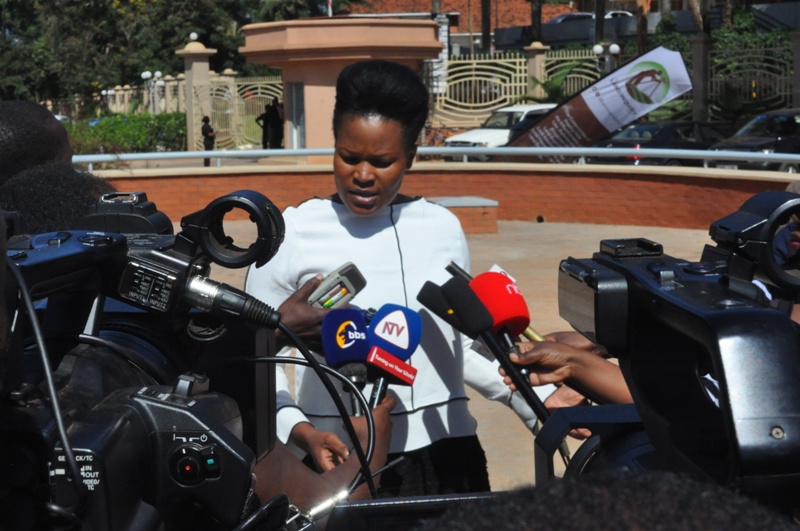 Land Grabbing: Police Abetting the Big Steal, Minister Tells Land Inquiry Terrifying Tales Peasantry Live With
Land Grabbing: Police Abetting the Big Steal, Minister Tells Land Inquiry Terrifying Tales Peasantry Live With
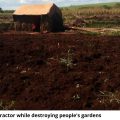 A community of over 300 smallholder farmers conned as their land is sold to a local investor without their consent.
A community of over 300 smallholder farmers conned as their land is sold to a local investor without their consent.
You may like
MEDIA FOR CHANGE NETWORK
Over 30 CSOs petition US over firm accused of evicting Kiryandongo locals
Published
1 year agoon
July 2, 2024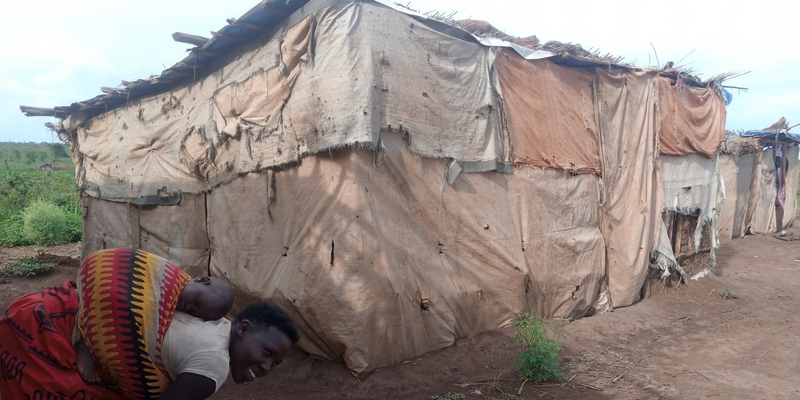
Activists in 36 local and foreign Civil Society Organizations (CSOS) have asked the World Bank, America and Netherlands to support an independent investigation into human rights abuses committed against dozens of vulnerable people in Kiryandongo District, western Uganda.
The CSOs indicate that the human rights abuses are being perpetrated by an agribusiness company, Agilis Partners Limited, which is reportedly financed by the World Bank, US and Netherlands.
Available information suggests that the firm is owned and directed by American businessmen brothers Philipp Prinz and Benjamin Prinz.
“But through its subsidiary, Agilis Ranch 20 & 21 Investment Company (Uganda) Ltd (registration #80020000586929), the multinational company is pursuing large-scale grain agriculture in disputed land in Kitwaala and Kiryandongo sub-counties,” the CSO’s which include Protection International, Policy Action Initiative, Asegis Community Network and the Accountability Counsel jointly claim.
According to the CSO’s, several Project Affected Persons (PAPs) have been forcefully evicted from their land to make way for the agribusiness company’s operation in violation of human rights.
Other concerns of widespread human rights abuses highlighted include, among others, violations of indigenous peoples’ right to free, prior, and informed consent, abduction, arrest, torture and sexual violence against women in addition to negative social and environmental impacts in Kiryandongo District, reads a letter written on June 18 to Prinz.
District authorities who preferred anonymity told Monitor that “no one knows the exact year when the government allegedly gave the land to three multinational companies for large scale farming.”
However, they suggested that Agilis Partners, Great Season (a firm ownedby Sudan nationals) and Kiryandongo Sugar Limited acquired the land under leasehold.
In February 2020, former Kiryandongo Resident District Commissioner (RDC) Peter Debele said “encroachers took advantage of the empty space to settle in the vast fertile ranches.”
Speaking to /*Monitor*/, Agilis Partners spokesperson Emmanuel Onyango dismissed allegations of forceful evictions and human rights abuses.
“To be honest, I don’t know why people keep on accusing us of evictions, yet we still have people residing on Ranch 20 and 21,” he said.
“For a company that is providing agronomic support to several farmers in the area, employing hundreds, this is really sad. If indeed they were evicting people, there wouldn’t be anyone left on the land,” he further
remarked in an April 19, 2022 WhatsApp text.
Petitioners
AbibiNsroma Foundation in Ghana, Accountability Counsel, Agency forTurkana Development Initiatives (ATUDIS), Friends of Lake Turkana, Protection International, Policy Action Initiative, Asegis Community Network , Asia Indigenous Peoples Network on Extractive Industries and Energy (AIPNEE), Indigenous Peoples Rights International, Asociación para la defensa de los derechos naturales, Benet Mosop Indigenous Community Association, Buliisa Initiative for Rural Development Organisation (BIRUDO), Chairperson of Oil Workers Rights Protection Organization, Environmental Defender Law Center.
Others are Global Rights, Green Development Advocates, International Accountability Project, Kebetkache Women Development & Resource Centre, League of Volunteers for Human Rights and Environment (LISVDHE), Menafem in Egypt, Oyu Tolgoi Watch, PIDP, Project on Organizing, Development, Education, and Research (PODER). Sengwer Indigenous Peoples Programme, The Awakening, Women for Green Economy Movement Uganda,
Green Advocates International, Jamaa Resource Initiatives Kenya, LSD, Narasha Community Development Group, Network Movement for Justice and Development (NMJD), Observatoire de la Société Civile Congolaise pour
les Minerais de Paix (OSCMP), Propurus, Turkana Extractive Consortium, Asociación ProPurus and Uganda-based Witness Radio.
Source: Daily Monitor
Related posts:
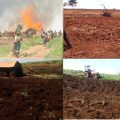
 Appellate Division of the East African Court of Justice (EACJ) to hear an Appeal filed by CSOs which seeks to reinstate a petition against the construction of the EACOP project tomorrow.
Appellate Division of the East African Court of Justice (EACJ) to hear an Appeal filed by CSOs which seeks to reinstate a petition against the construction of the EACOP project tomorrow.
 A son of the community defender is shot dead, another critically injured in a retaliatory attack by security guards evicting locals off their land to give way to large-scale sugarcane growing.
A son of the community defender is shot dead, another critically injured in a retaliatory attack by security guards evicting locals off their land to give way to large-scale sugarcane growing.
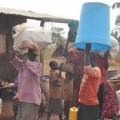 Masindi High Court refuses to block a multi-million agribusiness company from illegally evicting thousands.
Masindi High Court refuses to block a multi-million agribusiness company from illegally evicting thousands.
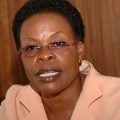 Lands minister orders Kiryandongo Sugar limited to stop evicting communities
Lands minister orders Kiryandongo Sugar limited to stop evicting communities
DEFENDING LAND AND ENVIRONMENTAL RIGHTS
Statement: The Energy Sector Strategy 2024–2028 Must Mark the End of the EBRD’s Support to Fossil Fuels
Published
2 years agoon
September 27, 2023
The European Bank for Reconstruction and Development (EBRD) is due to publish a new Energy Sector Strategy before the end of 2023. A total of 130 civil society organizations from over 40 countries have released a statement calling on the EBRD to end finance for all fossil fuels, including gas.
From 2018 to 2021, the EBRD invested EUR 2.9 billion in the fossil energy sector, with the majority of this support going to gas. This makes it the third biggest funder of fossil fuels among all multilateral development banks, behind the World Bank Group and the Islamic Development Bank.
The EBRD has already excluded coal and upstream oil and gas fields from its financing. The draft Energy Sector Strategy further excludes oil transportation and oil-fired electricity generation. However, the draft strategy would continue to allow some investment in new fossil gas pipelines and other transportation infrastructure, as well as gas power generation and heating.
In the statement, the civil society organizations point out that any new support to gas risks locking in outdated energy infrastructure in places that need investments in clean energy the most. At the same time, they highlight, ending support to fossil gas is necessary, not only for climate security, but also for ensuring energy security, since continued investment in gas exposes countries of operation to high and volatile energy prices that can have a severe impact on their ability to reach development targets. Moreover, they underscore that supporting new gas transportation infrastructure is not a solution to the current energy crisis, given that new infrastructure would not come online for several years, well after the crisis has passed.
The signatories of the statement call on the EBRD to amend the Energy Sector Strategy to
- fully exclude new investments in midstream and downstream gas projects;
- avoid loopholes involving the use of unproven or uneconomic technologies, as well as aspirational but meaningless mitigation measures such as “CCS-readiness”; and
- strengthen the requirements for financial intermediaries where the intended nature of the sub-transactions is not known to exclude fossil fuel finance across the entire value chain.
Source: iisd.org
Download the statement: https://www.iisd.org/system/files/2023-09/ngo-statement-on-energy-sector-strategy-2024-2028.pdf
Related posts:
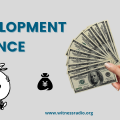
 Breaking: over 350,000 acres of land were grabbed during Witness Radio – Uganda’s seven months ban.
Breaking: over 350,000 acres of land were grabbed during Witness Radio – Uganda’s seven months ban.
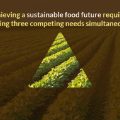 EBRD launches new agribusiness strategy
EBRD launches new agribusiness strategy
 30 civil society organizations have written to the World Bank Group demanding to publicly disclose the Africa Energy Approach paper.
30 civil society organizations have written to the World Bank Group demanding to publicly disclose the Africa Energy Approach paper.
 Over 600 million Africans lack electricity despite huge renewable energy potential
Over 600 million Africans lack electricity despite huge renewable energy potential
PETITIONS
Statement on the Dakar 2 Summit: “Climate smart agriculture” will worsen the climate crisis
Published
2 years agoon
January 26, 2023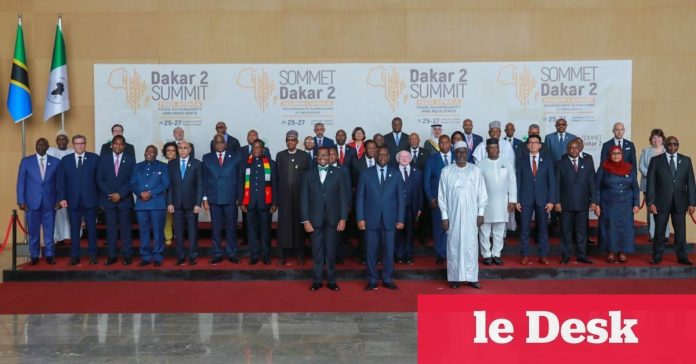
Witness Radio – Uganda joins the undersigned organizations, to express our deep concern at the aims and assumptions that appear to underlie the 2nd Dakar Summit on Agriculture and Agribusiness(Dakar II), being held from in Senegal.
The stated aim of the summit, organized by the African Development Bank (AfDB) together with the government of Senegal, is to raise agricultural productivity and support infrastructure and “climate-smart” agricultural systems using private sector investments in order to “help turn Africa into a breadbasket for the world.” The organizers of the summit claim that this will require between $28.5 billion and $36.6 billion annually.
However, the underlying structural problem with food insecurity in Africa is not simply one of insufficient land being cultivated in Africa, or of an overall shortage of food, as stated by AfDB.
Over the last ten years enormous swathes of land across the continent of Africa have been grabbed by agribusiness interests, resulting in oil palm plantations that have razed forests in Liberia and Sao Tomé, and waste from sugarcane plantations destroying the environment in Nigeria. The Land Matrix estimates that 50 per cent of land investment deals in Africa have taken place on land used by small scale farmers, mostly in Ethiopia, Senegal, Ghana, Mozambique, Sierra Leone, Tanzania, and Uganda.
The Summit’s assertion that “climate smart agriculture” (CSA) is required to address food insecurity is also not supported by the evidence. As explained by GRAIN, CSA includes practices which claim to reduce greenhouse gases, but avoids addressing the root causes of the climate crisis including the industrial food system: for instance, CSA can include spraying a field with toxic herbicides as a way to avoid plowing the soil and releasing carbon into the atmosphere. It can also include harmful practices such as turning land into soybean plantations which can be labeled as “climate smart” since soybeans do not require nitrogen fertilizers. GRAIN explains how CSA was devised by agribusiness corporations to counter growing support for agroecology in international forums on agriculture and climate change, with the term propelled into the mainstream by fertilizer companies, through a lobbying campaign and a global alliance of corporations, governments and multilateral agencies, such as the World Bank and FAO. Today, CSA can include a range of destructive practices such as large-scale monoculture, factory farming, or GMOs.
Among the CSA technologies promoted at the Dakar 2 summit include climate smart water efficient maize, which is being pushed by the African Development Bank’s Technologies for African Agricultural Transformation (TAAT)’s Maize Compact. Such technologies include the Water Efficient Maize for Africa (WEMA). According to the bank, drought tolerant maize helped farmers in Zimbabwe, Malawi, and Zambia to survive the drought in 2019. However, the African Centre for Biodiversity, ACB, has revealed how the WEMA project, which has been shrouded in secrecy, aims to build a private-sector seed industry in Africa and to spread the adoption of hybrid maize varieties. Both Monsanto and BASF have donated to the WEMA project. ACB explains how WEMA is being used to smooth the path toward the introduction of GMOs in African countries and to weaken biosafety regulations for instance in Tanzania and Mozambique. The Dakar II summit is also promoting heat tolerant wheat varieties in Sudan and in Ethiopia in partnership with seed companies.
While climate change is a serious threat to farmers in Africa, with 70 per cent of farmers depending on rain-fed farming, CSA approaches, including WEMA and drought tolerant maize varieties, are not the solution. Not only does CSA strengthen the very agribusiness and seed companies responsible for destroying farmers’ livelihoods and the agricultural biodiversity which is needed for robust food systems, but it also contributes to, rather than solves, the climate crisis by strengthening the industrial food system. According to GRAIN and the Institute for Agriculture and Trade Policy (IATP), the world’s five 8 largest meat and dairy corporations are responsible for an even greater volume of greenhouse gas emissions than oil companies like Exxon, Shell, or BP.
The Alliance for Food Sovereignty in Africa (AFSA) whose members include smallholder farmers, pastoralists, hunter-gatherers and indigenous people have explained how agroecological and indigenous practices are the right way forward for African farmers to survive the climate crisis.
We urge participants to the Dakar II Summit to i) consider ways of eliminating land-grabs from farmers, ii) reject CSA-based approaches that strengthen large seed and agribusiness companies and iii) support the organizing initiatives of African farmers and organizations who are fighting for food sovereignty and agroecology, and those who are fighting back against land grabbing by agribusiness and private investors.
Signed by:
The African Technology Assessment Platform (AfriTAP)
Terre à Vie, Burkina Faso
Collectif Citoyen pour l’agroécologie (CCAE) Burkina Faso
La Coalition pour la protection du patrimoine génétique africain (COPAGEN)
Health of Mother Earth Foundation (HOMEF) Nigeria
CESAO-AI, Burkina Faso
Institute for Research and Promotion of Alternatives in Development (IRPAD) Bamako, Mali
Environmental Rights Action/Friends of the Earth Earth Nigeria (ERA/FoEN)
The African Centre for Biodiversity (ACBio)
The ETC Group
Congo Basin Conservation Society (CBCS Network) DRC
Fédération agroécologique du Bénin (FAEB)
Zambia Alliance for Agroecology and Biodiversity (ZAAB)
Justiça Ambiental JA! Mozambique
Alliance for Food Sovereignty in Africa (AFSA)
Eco Defenders Network, Nigeria
Les Amis de la Terre, Togo
Conseil National de l’Agriculture Biologique (CNABio), Burkina Faso
Eastern and Southern Africa Small scale farmers Forum
Community Development Advocacy Foundation (CODAF)
Zero Waste Ambassadors (ZeWA)
Isoko Environment Monitoring Committee
Africa Center for Environment and Rural Development (ACERD)
Community Environmental Monitoring Committee
Community Forest Watch
Yasuni Association
Abotokio Agro Village Farmers Association, Abotokio, Nigeria
Worldwide opportunities on organic farms, Nigeria
African Union of Consumers, Ndjaména/Chad
International family of Catholic social justice organizations (CIDSE) (International)
Biowatch South Africa, Durban, South Africa
ReSCOPE Programme, Lusaka, Zambia
Biodiversity and Biosafety Association of Kenya (BIBA Kenya)
Bees Abroad UK
Réseau Africain pour le Droit à l’Alimentation au Togo (RAPDA-Togo)
BFA Food and Health Foundation
Student Environmental Assembly Nigeria (SEAN)
Host Community Network, Nigeria (HoCoN)
Corporate Accountability and Public Participation Africa (CAPPA)
The Young Environmental Network (TYEN)
Civil Society Agrarian Partnership (CSAP)
Committee on Vital Environmental Resources (COVER)
Women and Children Life Advancement initiative
Community Alliance for Global Justice/AGRA Watch
Urban-Rural Environmental Defenders (U-RED) Nigeria
Africa Europe Faith & Justice Network (AEFJN)
AFRICAN WOMEN COLLABORATIVE FOR HEALTHY FOOD SYSTEMS
African Women and Youth Environmental Initiative
SPEAK Nigeria
Network of Women in Agriculture Nigeria (NWIN)
Nous Sommes la Solution
Tanzania Alliance for Biodiversity (TABIO)
Eastern and Southern African Pastoralists Network (ESAPN)
Regional Schools and Colleges Permaculture Programme (ReSCOPE)
Kenya Peasants League
La Via Campesina Africa
Indigenous women and girls initiative
Food Sovereignty Ghana (FSG)
Youth for Environmental Sustainability and Development (YESD) Nigeria
Center for Food and Adequate Living Rights (CEFROHT) Uganda
Friends of Earth Africa (FoEA)
GRAIN
Centre for Minority Rights Development (CEMIRIDE), Kenya
Eco Index Agro Solutions Limited
World March of Women, South Africa
Women Collective Kenya
Foi et Justice, Cameroun
Confédération Paysanne du Faso, Burkina Faso
Société Civile Environnementale et Agro Rurale du Congo
Secrétariat Permanent des ONG (SPONG), Burkina Faso
Mouvement Africain pour les Droits Environnementaux dans la région de l’Est (MADEE), Burkina Faso
COASP Burkina, Burkina Faso
Fédération nationale des sociétés coopératives des Éleveurs du Burkina (SCOOP-CA/FEB), Burkina Faso
Diobass, Ecologie et Société/Plate forme du Burkina Faso
Urban-Rural Environmental Defenders (U-RED), Nigeria
Association Tunisienne de Permaculture, Tunisie
Association des Agriculteurs Sans Frontières, (AASF) Bukavu RDC
Association des femmes et enfants sans voix, (AFEV) RDC
Centre d’appui au développement et à la gestion de l’environnement (CADGE) RDC
Association pour la défense des droits des aides ménagères et domestiques (ADDAD) Burkina Faso
Les Jardins d’Hambe, Mali
COASP-Mali, Comité Ouest Africain des Semences Paysannes, Mali
Institut Panafricain pour la Citoyenneté, les consommateurs et le Développement (CICODEV), Sénégal
Related posts:
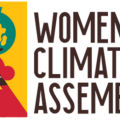
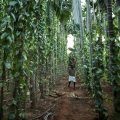 UN Food Systems Summit: The Battle Over Global Food and Agriculture Governance
UN Food Systems Summit: The Battle Over Global Food and Agriculture Governance
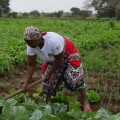 Africa must unlock the power of its women to save climate change
Africa must unlock the power of its women to save climate change
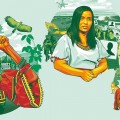 Defending tomorrow: The climate crisis and threats against land and environmental defenders
Defending tomorrow: The climate crisis and threats against land and environmental defenders
 The United Nations Food Systems Summit is a corporate food summit —not a “people’s” food summit
The United Nations Food Systems Summit is a corporate food summit —not a “people’s” food summit

A land rights defender and his wife have been arrested, charged, and sent to prison.

Land Grabbing Crisis Escalates in Uganda: Mayiga Urges Citizens to Secure Land Documents

Seizing the Jubilee moment: Cancel the debt to unlock Africa’s clean energy future

Activism on Trial: Despite the increasing repressive measures, Uganda’s EACOP protesters are achieving unexpected victories in the country’s justice systems.

A decade of displacement: How Uganda’s Oil refinery victims are dying before realizing justice as EACOP secures financial backing to further significant environmental harm.

Activism on Trial: Despite the increasing repressive measures, Uganda’s EACOP protesters are achieving unexpected victories in the country’s justice systems.

Govt launches Central Account for Busuulu to protect tenants from evictions

Communities Under Siege: New Report Reveals World Bank Failures in Safeguard Compliance and Human Rights Oversight in Tanzania

Innovative Finance from Canada projects positive impact on local communities.
Over 5000 Indigenous Communities evicted in Kiryandongo District
Petition To Land Inquiry Commission Over Human Rights In Kiryandongo District
Invisible victims of Uganda Land Grabs
Resource Center
- LAND GRABS AT GUNPOINT REPORT IN KIRYANDONGO DISTRICT
- RESEARCH BRIEF -TOURISM POTENTIAL OF GREATER MASAKA -MARCH 2025
- The Mouila Declaration of the Informal Alliance against the Expansion of Industrial Monocultures
- FORCED LAND EVICTIONS IN UGANDA TRENDS RIGHTS OF DEFENDERS IMPACT AND CALL FOR ACTION
- 12 KEY DEMANDS FROM CSOS TO WORLD LEADERS AT THE OPENING OF COP16 IN SAUDI ARABIA
- PRESENDIANTIAL DIRECTIVE BANNING ALL LAND EVICTIONS IN UGANDA
- FROM LAND GRABBERS TO CARBON COWBOYS A NEW SCRAMBLE FOR COMMUNITY LANDS TAKES OFF
- African Faith Leaders Demand Reparations From The Gates Foundation.
Legal Framework
READ BY CATEGORY
Newsletter
Trending
-

 SPECIAL REPORTS AND PROJECTS2 weeks ago
SPECIAL REPORTS AND PROJECTS2 weeks agoActivism on Trial: Despite the increasing repressive measures, Uganda’s EACOP protesters are achieving unexpected victories in the country’s justice systems.
-

 DEFENDING LAND AND ENVIRONMENTAL RIGHTS3 days ago
DEFENDING LAND AND ENVIRONMENTAL RIGHTS3 days agoA land rights defender and his wife have been arrested, charged, and sent to prison.
-

 SPECIAL REPORTS AND PROJECTS7 days ago
SPECIAL REPORTS AND PROJECTS7 days agoSeizing the Jubilee moment: Cancel the debt to unlock Africa’s clean energy future
-

 MEDIA FOR CHANGE NETWORK7 days ago
MEDIA FOR CHANGE NETWORK7 days agoLand Grabbing Crisis Escalates in Uganda: Mayiga Urges Citizens to Secure Land Documents



